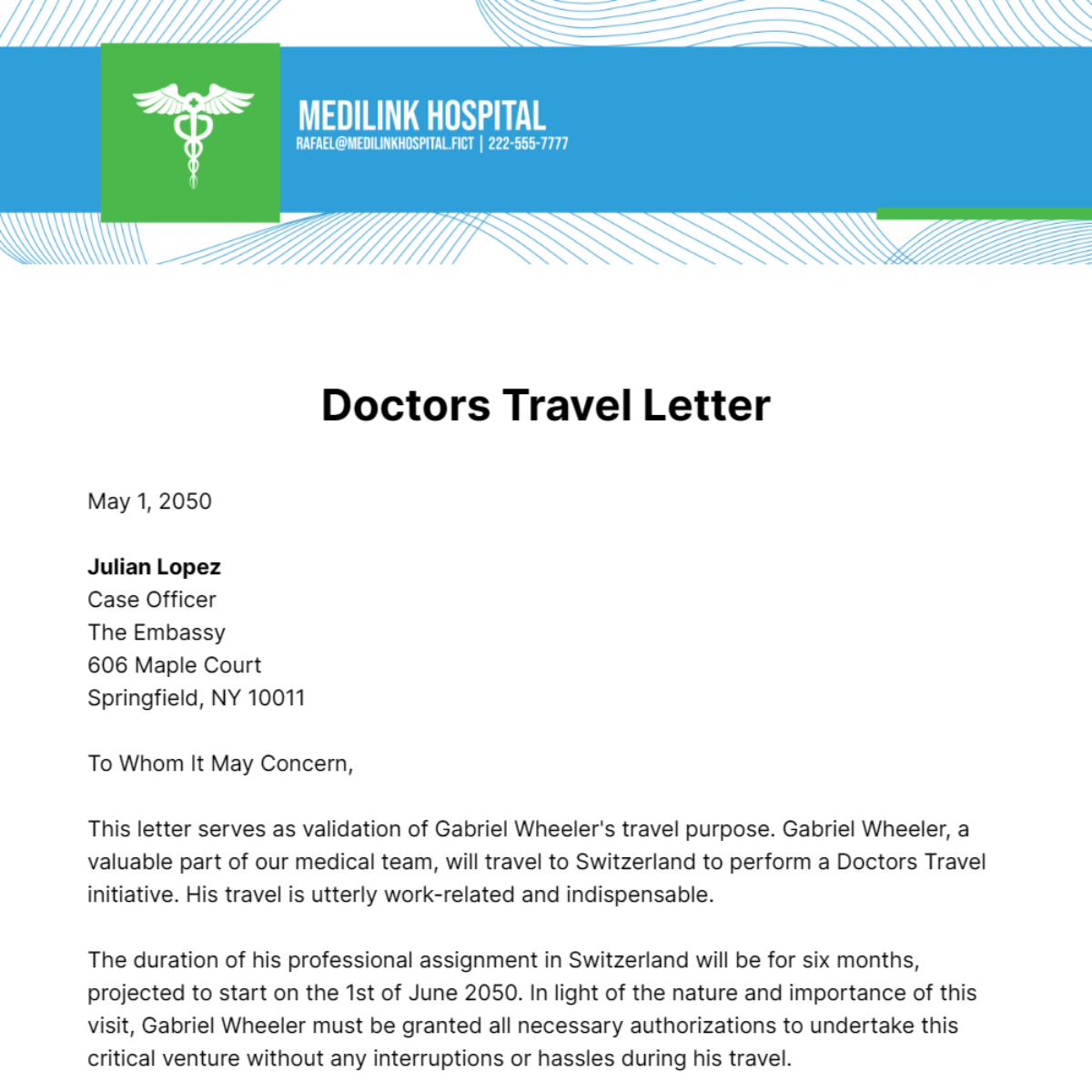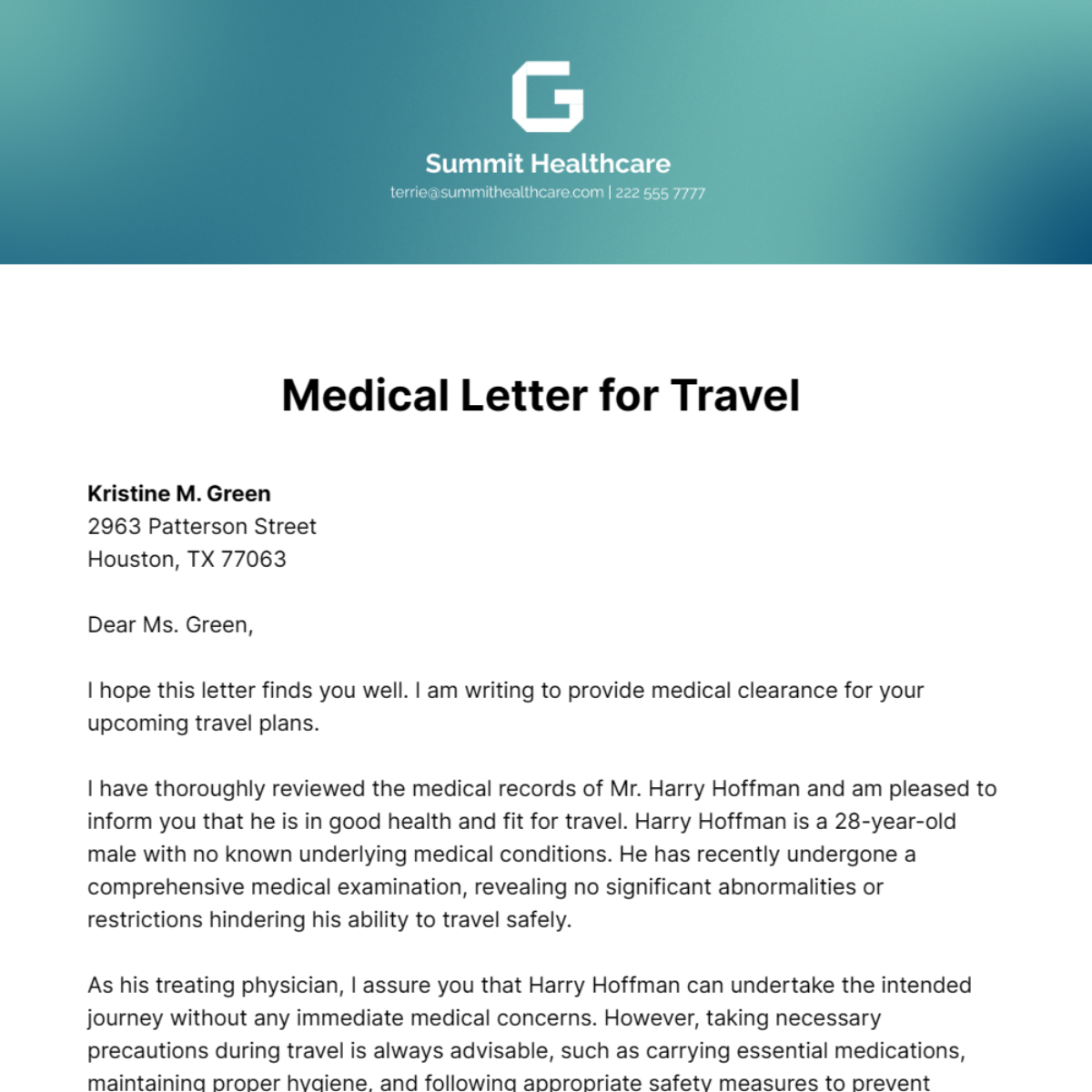Traveling is a joyous and enriching experience, but for individuals with specific medical conditions, planning a trip often involves additional steps. One essential element is obtaining a travel letter from your doctor. In this comprehensive guide, we will explore everything you need to know about these letters, including personal experiences, tips, and destination highlights to ensure your travel journey is smooth and enjoyable.
Understanding Travel Letters from Doctors
A travel letter from a doctor is a document that outlines a patient’s medical history, current health status, and any necessary medical considerations for traveling. It’s beneficial for individuals with chronic conditions or those requiring special accommodations. Let’s dive into why these letters are important, who needs them, and how to obtain one.
Why You Might Need a Travel Letter
- Traveling Abroad: Many countries require proof of medical conditions for entry, especially if traveling with medications.
- Airline Policies: Airlines may have specific regulations regarding passengers with medical needs, which can be addressed in a letter.
- Insurance Requirements: Some travel insurance policies require a doctor’s note for coverage related to pre-existing conditions.
Who Should Get a Travel Letter?
If you have any of the following conditions, consider obtaining a travel letter:
- Chronic illnesses (e.g., diabetes, heart conditions)
- Recent surgeries or medical procedures
- Severe allergies requiring epinephrine auto-injectors
- Pregnancy complications or considerations
My Personal Experience: A Journey to Bali
During my trip to Bali, I experienced a minor health scare due to my food allergy. Thankfully, I had obtained a travel letter from my doctor in advance, which came in handy while dining at local restaurants. The staff felt more comfortable accommodating my dietary restrictions when they understood the severity of my allergy. My travel letter gave me peace of mind, allowing me to fully immerse myself in the vibrant Balinese culture.
How to Obtain a Travel Letter from Your Doctor
Getting a travel letter from your doctor involves a few simple steps. Here’s a detailed process to help you secure the letter you need:
Step-by-Step Guide to Requesting a Travel Letter
- Schedule an Appointment: Consult your doctor to discuss your travel plans and the necessity of a letter.
- Provide Information: Share details about your condition, medications, and any specific requirements for your trip.
- Request a Formal Letter: Ask for a letter outlining your medical history, diagnosis, and treatment plan.
- Review the Letter: Ensure all information is accurate and includes the doctor’s contact details.
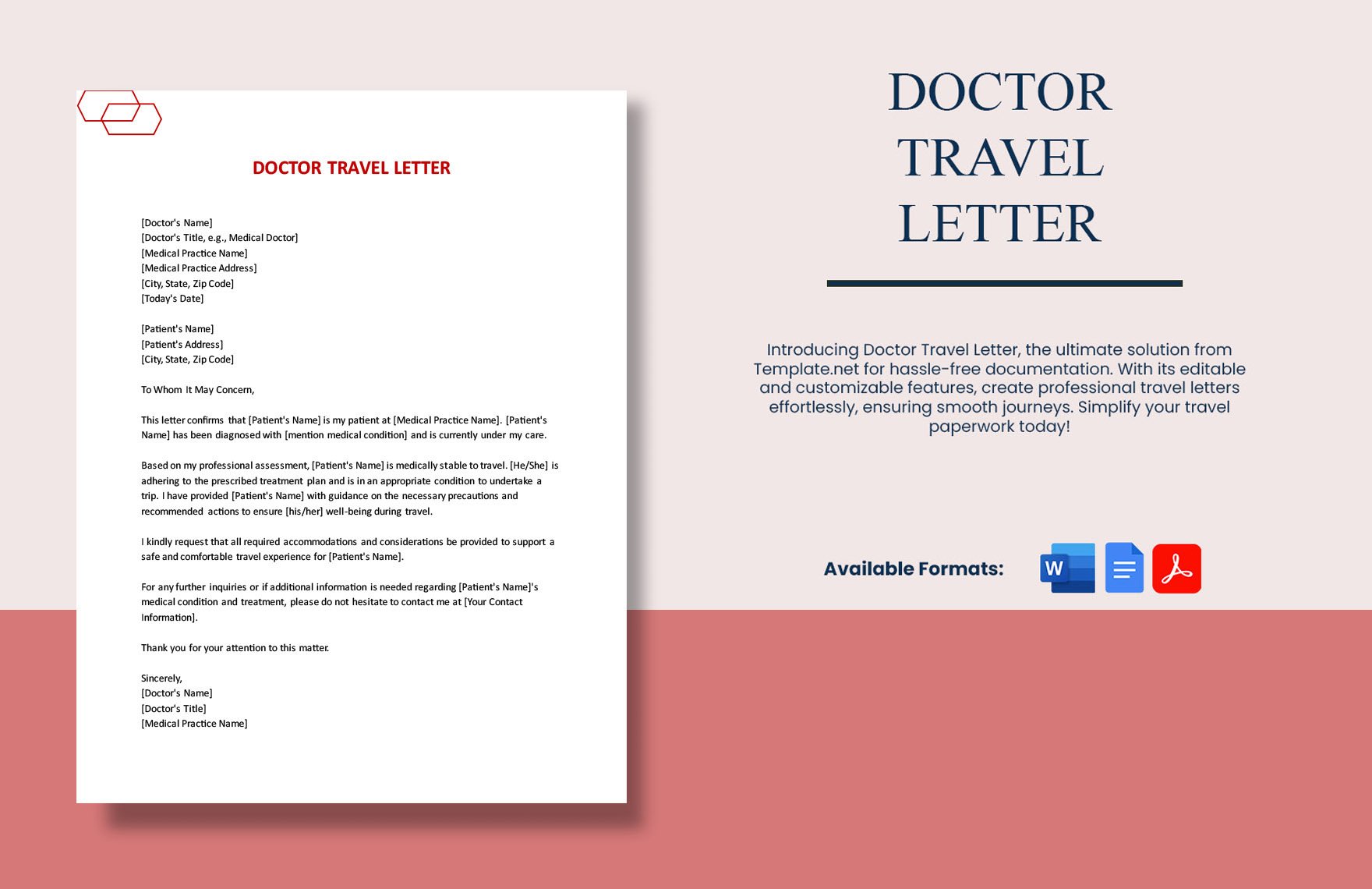
Travel Letter Template
Here’s a simple template you can share with your doctor for reference:
[Doctor's Name]
[Office Address]
[Phone Number]
[Email]
[Date]
 To Whom It May Concern,
I am writing to confirm that [Patient's Name] is under my care for [specific condition].
[He/She/They] is stable and able to travel, with the following considerations:
[list any medications, treatments, or accommodations].
To Whom It May Concern,
I am writing to confirm that [Patient's Name] is under my care for [specific condition].
[He/She/They] is stable and able to travel, with the following considerations:
[list any medications, treatments, or accommodations].
 Should you have any questions, please feel free to contact me.
Sincerely,
[Doctor's Signature]
Should you have any questions, please feel free to contact me.
Sincerely,
[Doctor's Signature]
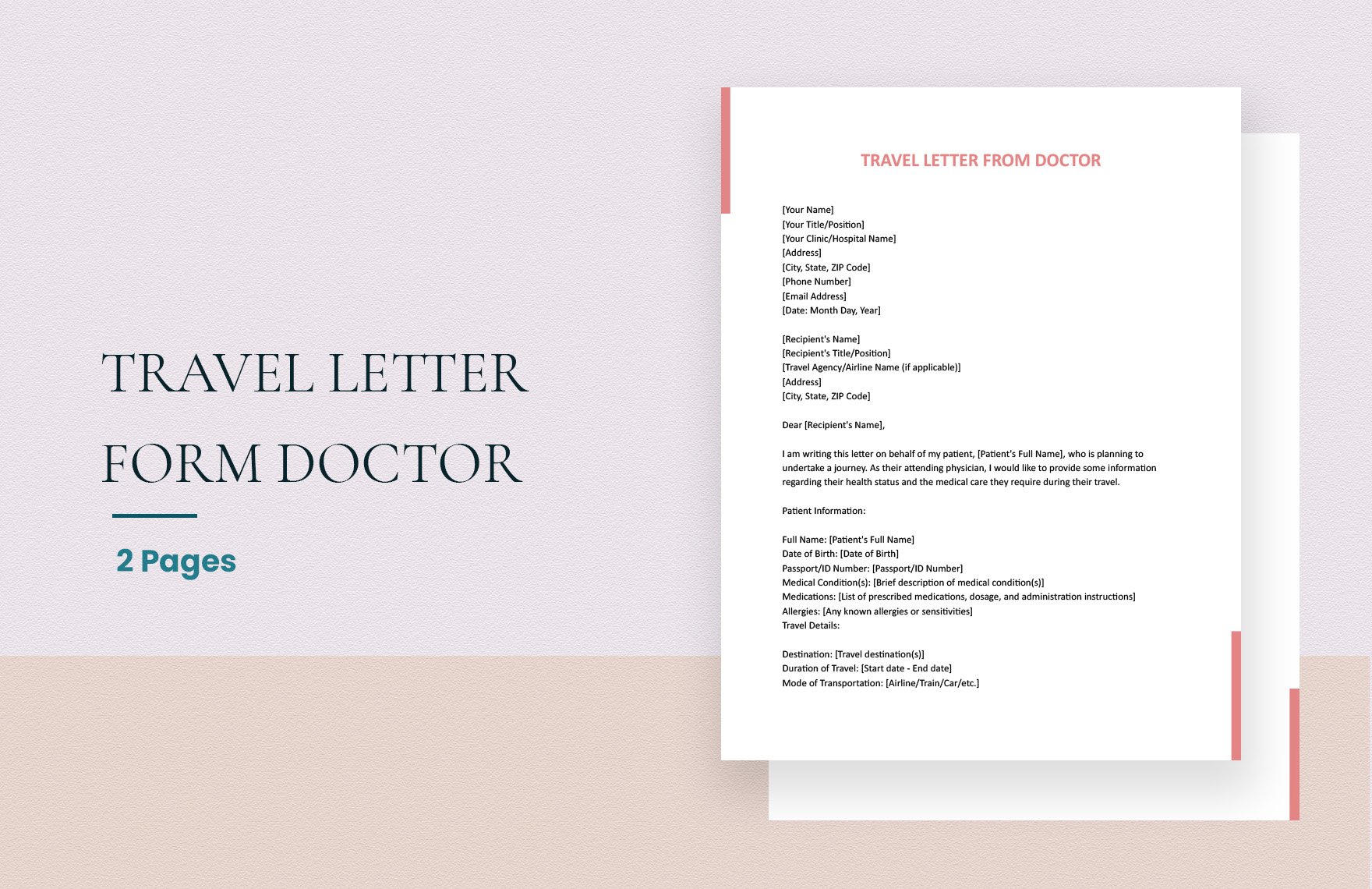
What to Include in Your Letter
A well-structured travel letter should contain:
- Your name and date of birth
- A brief description of your medical condition
- Current medications and dosages
- Any medical equipment required during travel
- Emergency instructions if necessary
Travel Tips for Individuals with Medical Conditions
Preparing for a trip can seem daunting for those with medical concerns. Here are some travel tips to make your journey more manageable:
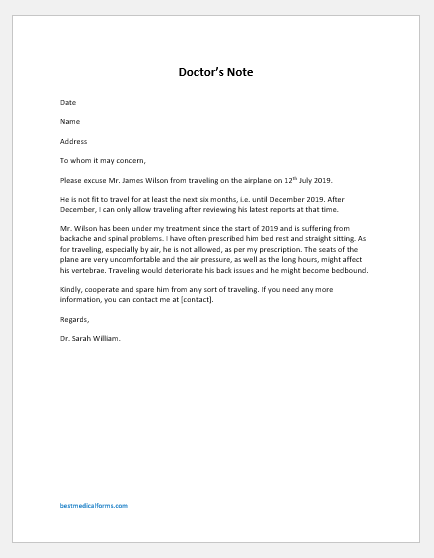
Before You Travel
- Pack Smart: Always carry your medications in their original packaging with labels.
- Know Your Destination: Research local healthcare facilities in case of emergencies.
- Inform Your Airline: Notify your airline of any special accommodations needed when booking your flight.
During Your Journey
- Stay Hydrated: Drink plenty of water, especially during long flights.
- Utilize Your Travel Letter: Keep your travel letter handy for easy access if needed.
- Listen to Your Body: Don’t hesitate to rest or seek medical assistance if you feel unwell.
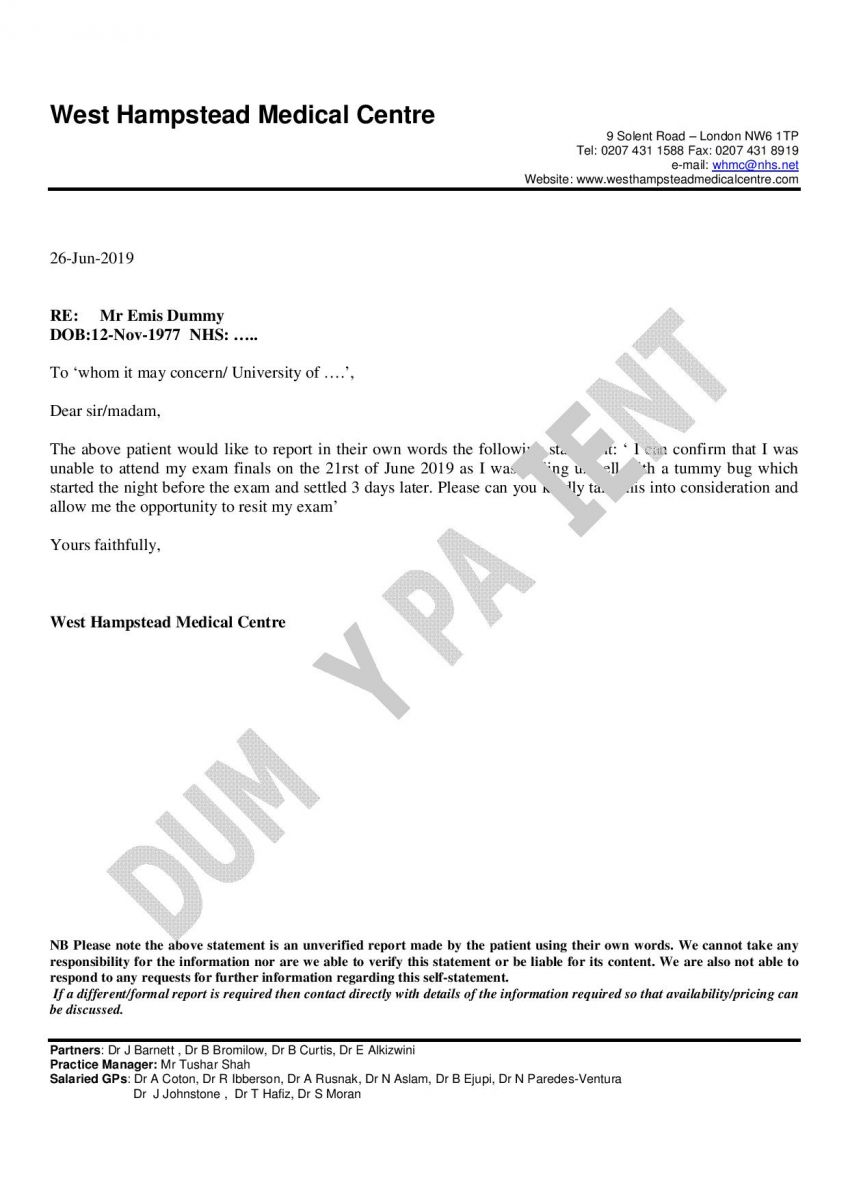
Emergency Preparations
Knowing what to do in case of a medical emergency is crucial. Here’s a checklist:
- Research local emergency numbers.
- Have a list of your allergies and medications readily available.
- Know the location of the nearest hospital or clinic.
Destination Highlights for Travelers with Medical Needs
Traveling with a medical condition doesn’t mean limiting your destination choices. Here are some top travel destinations that cater to medical needs:
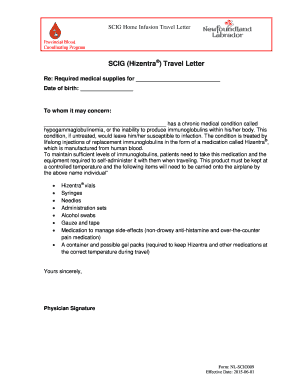
1. Amsterdam, Netherlands
Amsterdam is known for its exceptional healthcare facilities, including English-speaking doctors. Its well-connected public transport makes it easy to access medical assistance if needed.
2. Sydney, Australia
With a robust healthcare system, Sydney offers various medical services tailored to travelers. The city’s friendly locals and beautiful scenery provide a stress-free environment for recovery and relaxation.
3. Tokyo, Japan
Tokyo has several hospitals that cater to English-speaking patients, making it a safe destination for travelers with specific medical needs. The city’s structure is accommodating, with clean facilities and access to pharmacies.
Travel Comparison Table
| Destination | Healthcare Quality | Accessibility | Tourist Attractions |
|---|---|---|---|
| Amsterdam | High | Excellent | Museums, canals |
| Sydney | High | Good | Opera House, beaches |
| Tokyo | High | Excellent | Temples, parks |
Pros and Cons of Traveling with a Medical Condition
Traveling with medical needs comes with its unique challenges and benefits. Here’s a closer look:
Pros
- Increased awareness of your health needs.
- Opportunities to experience new cultures and destinations.
- Ability to share your story and inspire others.
Cons
- Advanced planning and coordination required.
- Potential for medical emergencies while traveling.
- Additional expenses for medical care or services.
FAQs about Travel Letters from Doctors
What should I do if my doctor refuses to write a travel letter?
If your doctor is hesitant, consider discussing your specific needs and the importance of the letter for your travel. You may also consult a different healthcare professional for support.
Can I use a travel letter for domestic flights?
While not always necessary, having a travel letter can be beneficial for domestic flights, especially in case of emergencies or to inform airline staff of your medical condition.
How long is a travel letter valid?
Typically, a travel letter is valid for the duration of your trip. However, it’s wise to check with your doctor if you plan any trips in the near future.
Are there specific formats required for travel letters?
While there is no one-size-fits-all format, a travel letter should be professional, clear, and include relevant medical information. Always check with your airline or destination country for specific requirements.
